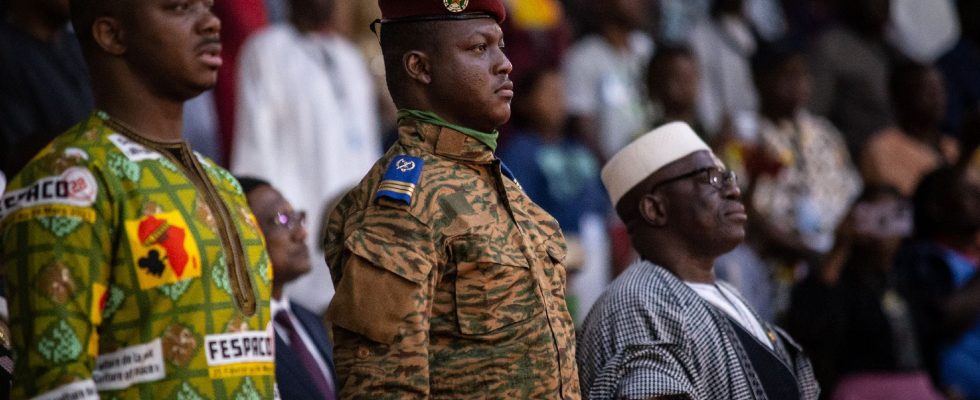The images are playing in a loop on the television. Drones are pounding motorcycles and groups of “terrorists” in forests and abandoned villages. “Target locked and successfully dealt with,” rejoices the commentator. Every day in Burkina Faso, the newspaper opens with the latest news from the army’s “reconquest operations”.
Clips supporting the military, disinformation campaigns on social networks… Since the army’s second coup more than a year ago, propaganda has been running at full speed. In power, Captain Ibrahim Traoré assumes: faced with almost daily jihadist violence, we must, he says, “glorify” those who fight them. “Either you are with the homeland, or you are against the homeland,” he insists.
As the number of attacks increases in the country, reaching a record level of more than 6,000 deaths in 2023, according to the NGO Armed Conflict Location and Event Data Project, doubting the junta’s strategy is prohibited. In recent times, repression has become tougher. After openly criticizing the regime, accusing it of authoritarian drift, a “dozen people” were requisitioned by the army, according to a coalition of trade union and civil society organizations. Among them, journalists, opinion leaders and politicians.
Sword of Damocles for opponents
In fact, the list of those forcibly enlisted has been growing since the junta declared “general mobilization” in April 2023. A “warning” decree gives the authorities the right to require any Burkinabe over the age of 18 to participate in the fight against terrorism. A sword of Damocles for the opponents, while the soldiers and their civilian auxiliaries, trained in fourteen days, pay a heavy price on the ground. “Those who are not committed, those who are not convinced, they will fall. And we are not going to stop,” threatened Ibrahim Traoré on November 6.
Serial requisitions, arrests, extrajudicial executions… “IB”, as its supporters call it, wants to bring into line any dissonant voice in the official narrative. Nine years after the fall of the autocratic regime of Blaise Compaoré (in power from 1987 to 2014) and the breath of democratic hope embodied by the popular uprising of October 2014, a climate of terror has taken hold in the country. The fear of being listened to, followed by intelligence or denounced by neighbors exists everywhere. Few people dare to attack power in public. A few months ago, Souleymane*, a Burkinabè activist, was kidnapped by “hooded men” armed with Kalashnikovs. “They handcuffed me and forced me into their unmarked car,” he said, speaking on condition of anonymity. Then he was taken to a villa in the capital, where soldiers beat him, whipped him and submerged his head under water. “They said that if I did not support the head of state, they would kill me,” he whispers. The next day, he was taken to a military camp where, after being trained in the use of weapons, he would be kept for three months and sent on operations against the jihadists.
Militarist speeches
Posters, t-shirts bearing his image… Ibrahim Traoré directs his communication with an iron fist. Weapon on his thigh, red beret and sand fatigues of the Burkinabè army, the 35-year-old captain cultivates his image as a “war leader”. Since taking power, he has multiplied militarist speeches, references to the former revolutionary president Thomas Sankara (assassinated in 1987) and diatribes against “imperialism” and its “local lackeys”. Some of his supporters go so far as to compare him to a “messiah” and are already calling for a “presidency for life”.
On social networks, a galaxy of trolls and fake media has emerged. Campaigns to denigrate journalists, death threats, hate messages… Some accounts are linked to the Pan-African Group for Trade and Investment, led by Ivorian-Burkinabe lobbyist Harouna Douamba, known for his influence and disinformation operations in Central African Republic and described as “close to Wagner” by Reporters Without Borders.
As the regime hardens, the prospect of elections, scheduled for 2024, recedes, while the humanitarian situation deteriorates. At least 46 towns and villages in Burkina Faso live under jihadist blockade, according to Amnesty International. More than 2 million people have fled their homes and 1 in 5 Burkinabè people need humanitarian aid.
.
